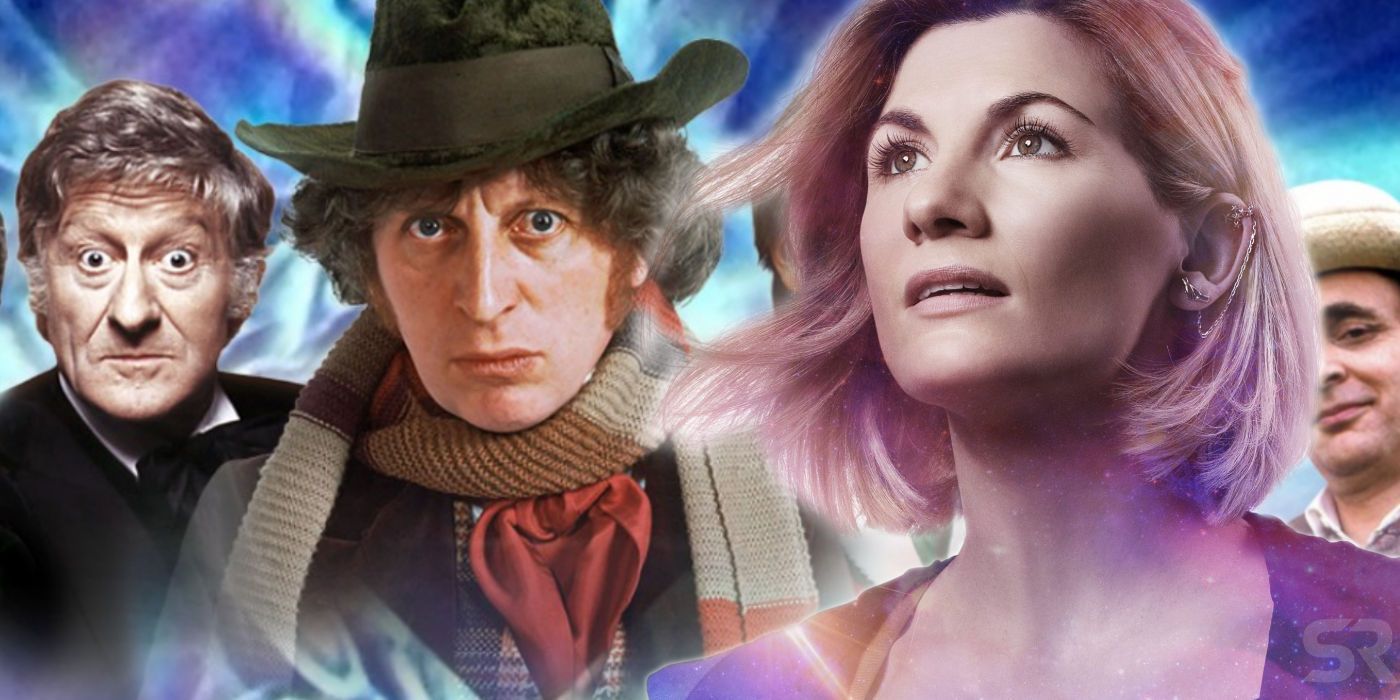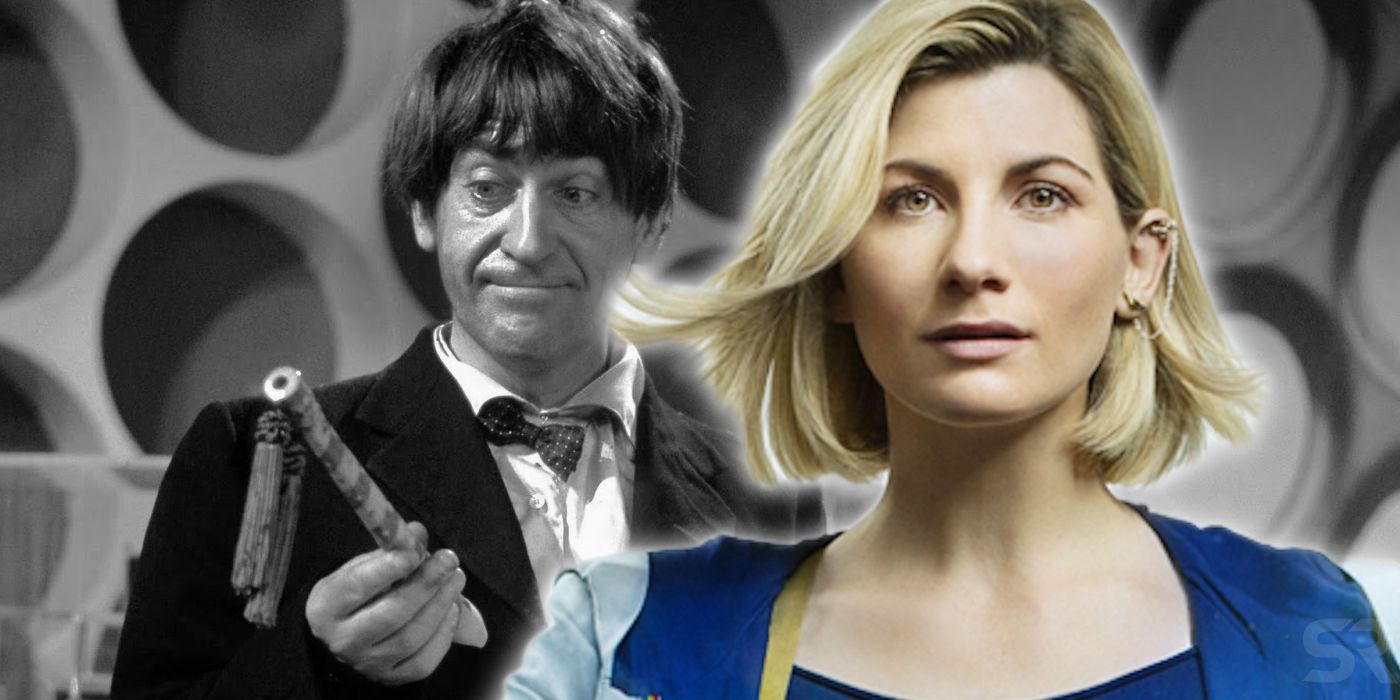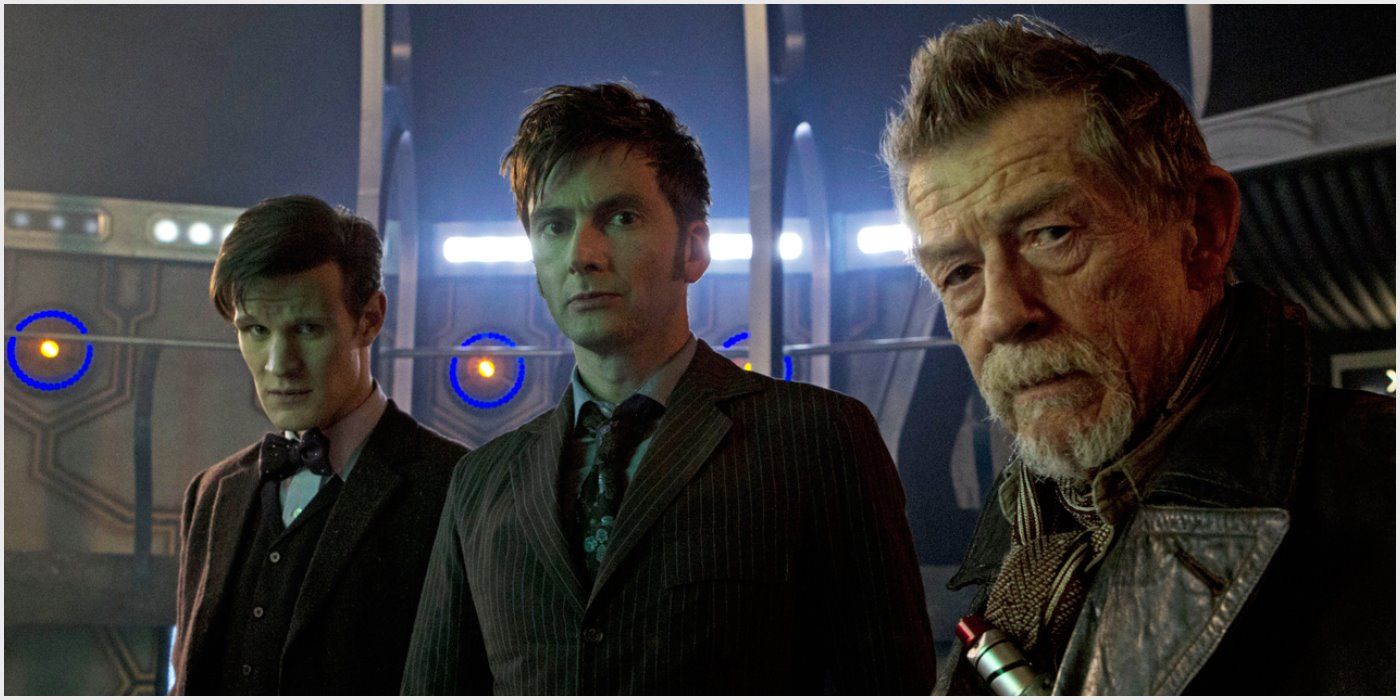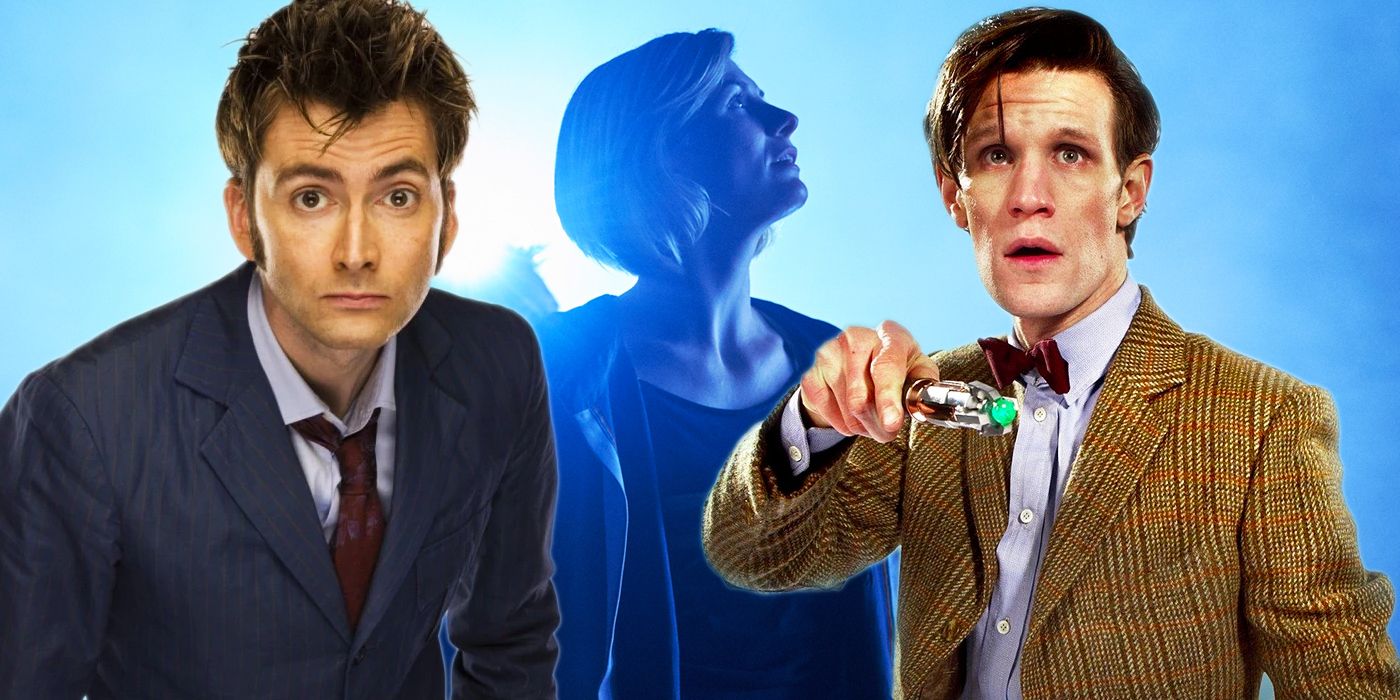
Doctor Who's Timeless Child retcon puts classic Doctor Who above the 2005 relaunch - and that causes a major problem. Doctor Who showrunner Chris Chibnall promised season 12 would change everything, and he wasn't exaggerating. The Doctor Who season 12 finale revealed the Doctor isn't a Time Lord at all, but rather is the Timeless Child, a being who potentially originates from another universe - and who has unlimited regenerations. She was discovered untold millennia ago by a Gallifreyan explorer, and became the base genetic code for the entire Time Lord race.
It's easily the biggest retcon since the Time Lords were introduced in 1969's "The War Games". The Doctor's entire origin story was nothing but a lie, a falsehood constructed by the Time Lords. Oddly enough, though, it's also somewhat underwhelming in that it changes absolutely nothing about the Doctor's character. The Doctor Who season 12 finale even seemed to admit as much, in a key scene where Jodie Whittaker's Doctor consulted with Jo Martin's mystery Doctor inside the Matrix. "Have you ever been limited by who you were before," Jo Martin's Doctor asked. The Doctor found the strength of will to break the Matrix by deciding her newly-revealed backstory wasn't really all that important anyway.
But there are other issues, ones that run to the very core of Doctor Who itself. The Timeless Child retcon has an uneasy relationship with the show's past - and it points to problems ahead in Doctor Who season 13 and beyond.

Chris Chibnall is an old-school Doctor Who fan; as a teenager he represented the Doctor Who Appreciation Society on a BBC opinion show, although he now looks back on the sentiments he expressed there with a degree of embarrassment. The seeds of the Chibnall era were sown in his childhood; in many ways, he's actually adapting ideas he came up with as a child, which perhaps explains why the Timeless Child retcon fits surprisingly well with classic Doctor Who.
It's easy to forget classic Doctor Who was itself quite inconsistent, largely because major elements of the show's mythology were made up on the fly. The first and second Doctors both claimed to have invented the TARDIS, for example, where later incarnations said they'd just stolen a battered old Type 40. In the Tom Baker era, one story - "The Brain of Morbius" - saw the Doctor pitted in psychic combat against another Time Lord, and the faces of previous incarnations flashed on the screen. They included no less than eight new faces, and producer Philip Hinchcliffe told the Radio Times he definitely intended to suggest there had been other versions of the Doctor before Hartnell. "I just reasoned that it was entirely possible that William Hartnell may not have been the first Doctor Who," he explained. "So yes, as far as [writer] Bob [Holmes] and I were concerned, the other faces were meant to be past Doctors… it is true to say that I attempted to imply that William Hartnell was not the first Doctor." In truth, at the time, nobody imagined Doctor Who would last long enough to deal with the regeneration cap, so little thought was put into this. Moving on to the Sylvester McCoy era, script editor Andrew Cartmel became keen to restore an element of mystery to the Doctor, and began hinting he was "more than just a Time Lord."
All of these issues and anomalies are easily absorbed into the Timeless Child retcon, explained away by the Doctor's memory being warped by the Time Lords. Presumably each regeneration jolts the synapses a little, so each Doctor knows a little more or less about their true past; that explains why McCoy's Doctor seemed well aware of his ancient history, or why Tom Baker's Doctor was confident he could safely cross the "Boundary" into another universe in "Planet of Evil." Overall, then, the Timeless Child retcon works surprisingly well - so long as you make the assumption some Doctors knew more than others.

But here's the problem; the Timeless Child doesn't fit at all with Doctor Who post-2005. Classic Doctor Who had treated the Time Lords as a background presence, only bringing them up when they were relevant or the writers wanted to pen a story set on Gallifrey. In contrast, the Time Lords were essential backstory to the Russell T. Davies era, because the Doctor genuinely believed he had wiped out his own people at the end of the Time War. When Steven Moffat took over as showrunner, he chose to bring Gallifrey back in the unforgettable global simulcast, "The Day of the Doctor." This ended with a jubilant Matt Smith Doctor celebrating his homeworld's salvation, declaring he was going "Home. The long way round." In thematic terms, the Timeless Child retcon blunts the edge of all those stories, because the Time Lords were not the Doctor's people at all; they were the ones who had tortured him and deceived him into thinking he was one of them. They carry a strange sense of emotional dissonance now.
The problems become particularly pronounced when fans look at Matt Smith's regeneration story, "The Time of the Doctor." This story saw the Doctor come to the end of his lives, meaning his next death would be a permanent one. Fortunately, Clara Oswald persuaded the Time Lords to intervene, and they gifted the Doctor with a whole new regeneration cycle. Meanwhile, another major sub-plot in that story - which had been building up since Davies' tenure as showrunner - was the significance of the Doctor's real name, a secret known only to River Song. This appears to be his Time Lord name, meaning the Timeless Child retcon means it was just a lie anyway.

As little as many Doctor Who fans may like to admit it, the show has always had its continuity problems and retcons; even the origin story of the Daleks has been told twice, in ways that are difficult to reconcile, while the Dalek homeworld of Skaro has been destroyed multiple times. But the Timeless Child is easily the most sweeping change to Doctor Who lore since 1969. What's more, Chibnall is sure to build upon this, revealing where the Doctor really comes from - which means the lore is about to change even more. The danger is that Chibnall will alienate fans of the Davies and Moffat era, who feel a sharp discontinuity between Chibnall's stories and the ones they have been watching for 15 years now.
The problem is even worse than that, however, because the Timeless Child retcon serves as a disturbing symbol of Chibnall's mistakes as a storyteller. He is a lover of the classic series, and as a result the Timeless Child retcon fits perfectly with it; he is telling the stories he dreamed up when he was a child. But the thing is, Doctor Who has grown up since then. Russell T. Davies breathed new life into the show - regenerated it, so to speak - and Steven Moffat followed in Davies' footsteps. Chibnall fails to appreciate this, and as a result he forgets to learn crucial lessons from the relaunch. He's both written and commissioned scripts that feel like old-school Doctor Who, that could be broken down into multi-episode stories with ease, and that have a far slower pace than the energetic series Russell T. Davies recreated. Chibnall has even forgotten the importance of companions, who should act as the lens through which the audience views the Doctor; all his biggest retcons and revelations - even the discovery Jo Martin's character is a Doctor - happened without a companion in sight.
In the 1980s, Chris Chibnall complained Doctor Who had lost its way. He was sadly right; the Colin Baker era, in which he made that statement, was hardly the best period in the show's history. So it is frankly rather odd that he has made the same mistake as the showrunners back then, and that his Doctor Who has lost its way as well. The Timeless Child retcon is, unfortunately, testament to this fact.
from ScreenRant - Feed https://ift.tt/2YZfQRx


0 Comments